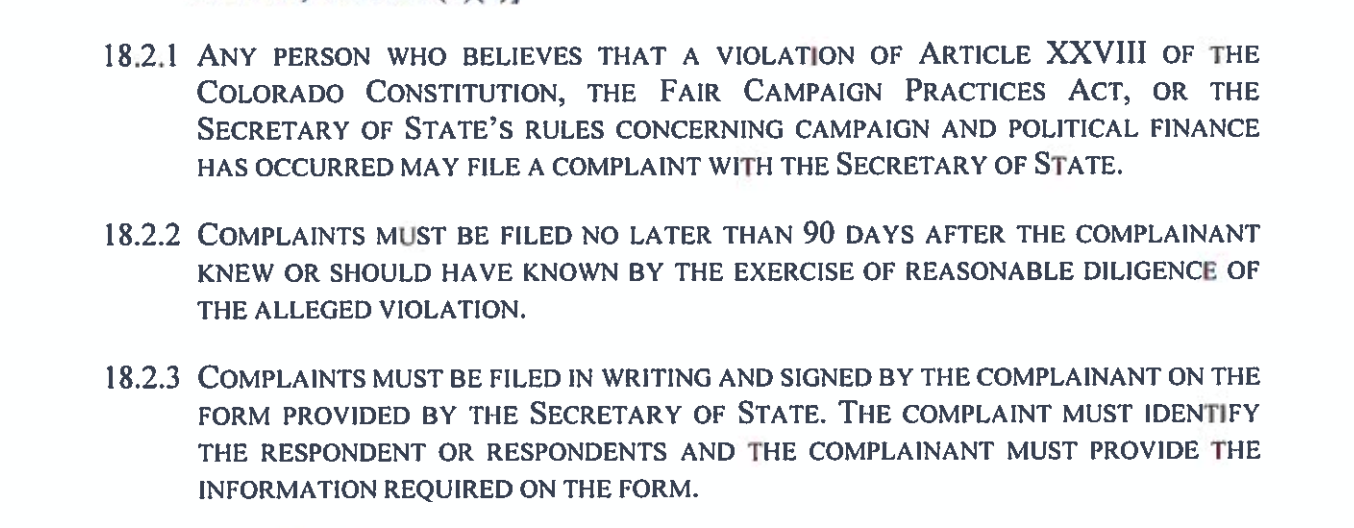
U.S. Senate
See Full Big Line
(D) J. Hickenlooper*
(R) Somebody
80%
20%

Governor
See Full Big Line
(D) Joe Neguse
(D) Phil Weiser
(D) Jena Griswold
60%
60%
40%↓

Att. General
See Full Big Line
(D) M. Dougherty
(D) Alexis King
(D) Brian Mason
40%
40%
30%

Sec. of State
See Full Big Line
(D) George Stern
(D) A. Gonzalez
(R) Sheri Davis
40%
40%
30%

State Treasurer
See Full Big Line
(D) Brianna Titone
(R) Kevin Grantham
(D) Jerry DiTullio
60%
30%
20%

CO-01 (Denver)
See Full Big Line
(D) Diana DeGette*
(R) Somebody
90%
2%

CO-02 (Boulder-ish)
See Full Big Line
(D) Joe Neguse*
(R) Somebody
90%
2%

CO-03 (West & Southern CO)
See Full Big Line
(R) Jeff Hurd*
(D) Somebody
80%
40%

CO-04 (Northeast-ish Colorado)
See Full Big Line
(R) Lauren Boebert*
(D) Somebody
90%
10%

CO-05 (Colorado Springs)
See Full Big Line
(R) Jeff Crank*
(D) Somebody
80%
20%

CO-06 (Aurora)
See Full Big Line
(D) Jason Crow*
(R) Somebody
90%
10%

CO-07 (Jefferson County)
See Full Big Line
(D) B. Pettersen*
(R) Somebody
90%
10%

CO-08 (Northern Colo.)
See Full Big Line
(R) Gabe Evans*
(D) Yadira Caraveo
(D) Joe Salazar
50%
40%
40%

State Senate Majority
See Full Big Line
DEMOCRATS
REPUBLICANS
80%
20%

State House Majority
See Full Big Line
DEMOCRATS
REPUBLICANS
95%
5%
 June 21, 2018 10:45 AM UTC
June 21, 2018 10:45 AM UTC 5 Comments
5 Comments Colorado Secretary of State Wayne Williams
Colorado Secretary of State Wayne Williams  STEP ONE: Identify the Colorado campaign law that the candidate broke and make sure it’s covered under Williams’ new rules. In our example about Stapleton, the applicable law is the Fair Campaign Practices Act, which is specified in
STEP ONE: Identify the Colorado campaign law that the candidate broke and make sure it’s covered under Williams’ new rules. In our example about Stapleton, the applicable law is the Fair Campaign Practices Act, which is specified in  I rode my bike up to the secretary of state’s office and delivered my complaint this morning, but you can also mail it in. Don’t forget to sign yours!
I rode my bike up to the secretary of state’s office and delivered my complaint this morning, but you can also mail it in. Don’t forget to sign yours!
Wait a minute. YOU filed the complaint, Jason? And you're pretending it's journalism??
This is preposterous!
He did it because he's quaking in his boots over Cynthia Coffman.
It's a real campaign finance violation that Stapleton's campaign committed. So Jason filed a real complaint. I think Jason's doing a public service. What's the problem?
Stumbleton's (to use the moniker Republicans have given him) lax attitude regarding financial filings (remember his missing blind trust?) might explain his reluctance to provide his tax returns (assuming he has them to share).
it's explaining the new rules using an example everyone can understand. that's journalism, yes.